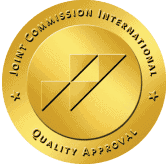You deserve compassionate, evidence-based treatment that addresses your unique needs and helps you reclaim your life. Professional treatment centers in San Diego understand the devastating impact of fentanyl addiction and provide comprehensive care designed to support your recovery journey.
Take your first step toward freedom from fentanyl addiction today.
What are the warning signs of fentanyl addiction?
You may be struggling with fentanyl addiction if you recognize these critical warning signs in yourself or a loved one. Fentanyl is 50-100 times more potent than morphine, making it extremely dangerous and highly addictive even with minimal exposure.
Physical warning signs you might experience:
- Extreme drowsiness or nodding off unexpectedly
- Constricted pupils that don’t respond to light changes
- Slowed or shallow breathing patterns
- Blue lips, fingernails, or skin (cyanosis)
- Cold, clammy skin or excessive sweating
- Dramatic weight loss and poor hygiene
- Track marks, bruises, or infections at injection sites
- Frequent flu-like symptoms without actual illness
- Chronic fatigue and weakness
- Nausea, vomiting, and digestive issues
Behavioral changes that indicate addiction:
- Needing increasingly higher doses to feel effects
- Inability to control how much or how often you use
- Spending excessive time obtaining, using, or recovering from fentanyl
- Abandoning responsibilities at work, school, or home
- Withdrawing from family, friends, and social activities
- Continuing use even when facing serious consequences
- Engaging in risky behaviors to obtain the drug
- Financial problems due to drug expenses
- Lying about drug use or hiding paraphernalia
- Failed attempts to quit or reduce usage
Professional treatment centers recognize that fentanyl addiction develops rapidly due to the drug’s extreme potency. You don’t have to face this alone – help is available now.
Why is fentanyl addiction so dangerous?
You’re facing one of the most lethal addiction crises in modern history. Fentanyl-related overdose deaths decreased by 37% in 2024, dropping from 76,282 deaths in 2023 to 48,422 deaths – but this still represents nearly 50,000 preventable tragedies.
Life-threatening risks you face with continued use:
- Fatal overdose can occur with microscopic amounts
- Respiratory depression leading to brain damage or death
- Cardiac arrest and cardiovascular complications
- Increased risk of HIV, hepatitis, and other bloodborne diseases
- Severe infections including endocarditis and abscesses
- Collapsed veins and tissue necrosis
- Liver and kidney damage from adulterants
- Mental health deterioration including depression and anxiety
- Cognitive impairment and memory problems
- Social isolation and relationship destruction
Why fentanyl is uniquely dangerous:
- Extremely potent – lethal doses measured in micrograms
- Often mixed with other drugs without user knowledge
- Rapid onset increases overdose risk
- Short duration leads to frequent redosing
- Tolerance develops quickly, requiring higher doses
- Withdrawal symptoms are severe and prolonged
- Street versions contain unknown adulterants
- Multiple doses of naloxone may be needed for overdose reversal
Treatment centers in San Diego understand these unique dangers and provide specialized care protocols designed specifically for fentanyl addiction. You can’t afford to wait – every day increases your risk of fatal overdose.
What does fentanyl withdrawal feel like?
You’ll experience intense physical and psychological symptoms when stopping fentanyl use. Withdrawal from fentanyl is typically more severe and longer-lasting than other opioids due to its potency and how it affects your brain chemistry.
Physical withdrawal symptoms you may experience:
- Severe muscle aches and joint pain throughout your body
- Intense nausea, vomiting, and diarrhea
- Profuse sweating alternating with chills and goosebumps
- Rapid heart rate and elevated blood pressure
- Severe headaches and sensitivity to light
- Tremors and uncontrollable shaking
- Insomnia and restless leg syndrome
- Runny nose and excessive tearing
- Abdominal cramping and digestive distress
- Extreme fatigue and weakness
Psychological symptoms that accompany withdrawal:
- Overwhelming cravings for fentanyl
- Severe anxiety and panic attacks
- Deep depression and hopelessness
- Extreme irritability and mood swings
- Inability to concentrate or focus
- Hallucinations or paranoid thoughts
- Suicidal ideation in severe cases
- Emotional numbness or hypersensitivity
- Memory problems and confusion
- Intense fear of never feeling normal again
Timeline of withdrawal symptoms:
- 6-12 hours: Initial symptoms begin
- 1-3 days: Peak intensity of physical symptoms
- 4-7 days: Physical symptoms start to subside
- 2-4 weeks: Psychological symptoms may persist
- Months: Post-acute withdrawal syndrome possible
Professional treatment centers provide medically supervised withdrawal management to keep you safe and comfortable during this challenging process. You don’t have to endure withdrawal alone.
How effective is professional fentanyl addiction treatment?
You can achieve lasting recovery with evidence-based treatment approaches specifically designed for fentanyl addiction. Treatment centers report significantly higher success rates when clients complete comprehensive programs that address both physical dependence and underlying psychological factors.
Treatment effectiveness statistics:
- Medication-assisted treatment increases retention rates by 60-90%
- Comprehensive programs show 40-60% abstinence rates at one year
- Clients completing full treatment programs have 3x higher success rates
- Naloxone distribution has prevented thousands of overdose deaths
- Behavioral therapy combined with medication shows best outcomes
- Longer treatment duration correlates with better long-term success
- Family involvement improves treatment completion by 25%
- Peer support programs increase sustained recovery rates
Evidence-based treatments that work for fentanyl addiction:
- Medication-assisted treatment with buprenorphine or methadone
- Cognitive-behavioral therapy to change thought patterns
- Contingency management with positive reinforcement
- Motivational interviewing to enhance commitment
- Trauma-informed care addressing underlying issues
- Group therapy and peer support programs
- Family therapy to rebuild relationships
- Relapse prevention planning and coping skills
- Holistic approaches including mindfulness and exercise
- Aftercare planning for long-term support
Treatment centers understand that fentanyl addiction requires specialized approaches different from other substance use disorders. You’ll receive personalized care based on your specific needs, medical history, and recovery goals.
Specialized fentanyl treatment approaches
You’ll receive targeted interventions designed specifically for fentanyl addiction’s unique challenges. Treatment centers use evidence-based approaches that address both the physical dependence and psychological aspects of fentanyl use disorder.
Medication-assisted treatment options:
- Buprenorphine (Suboxone) to reduce cravings and withdrawal
- Methadone for severe, long-term fentanyl dependence
- Naltrexone to block opioid effects after detox
- Comfort medications for withdrawal symptoms
- Mental health medications for co-occurring disorders
Therapeutic interventions you’ll experience:
- Individual counseling to address personal triggers and trauma
- Cognitive-behavioral therapy to change destructive thought patterns
- Dialectical behavior therapy for emotional regulation
- Motivational interviewing to strengthen commitment to recovery
- Trauma-informed therapy for underlying psychological wounds
- Group therapy for peer support and accountability
- Family therapy to repair damaged relationships
- Relapse prevention planning with personalized strategies
Holistic treatment components:
- Mindfulness and meditation practices
- Physical fitness and nutritional counseling
- Art, music, and expressive therapies
- Acupuncture and massage therapy
- Yoga and stress reduction techniques
- Spiritual counseling and exploration
- Life skills training and vocational support
- Recreation therapy and healthy activities
Treatment centers understand that fentanyl addiction affects every aspect of your life. You’ll receive comprehensive care that addresses the physical, emotional, social, and spiritual dimensions of recovery.
What to expect during fentanyl addiction treatment
You’ll begin with a comprehensive assessment to determine your specific needs and create a personalized treatment plan. Treatment centers prioritize your safety and comfort while providing the intensive support necessary for fentanyl recovery.
Initial assessment process:
- Medical evaluation including physical exam and lab work
- Psychological assessment for mental health conditions
- Addiction severity evaluation and drug use history
- Social and family situation assessment
- Insurance verification and financial planning
- Treatment goal setting and program selection
Medical stabilization phase: You’ll receive 24/7 medical monitoring during withdrawal management. Medical staff will administer medications to reduce withdrawal symptoms and ensure your safety. This phase typically lasts 3-7 days but may be longer for severe fentanyl dependence.
Active treatment phase: You’ll participate in daily therapeutic activities designed to address addiction’s root causes. Your schedule will include individual therapy, group sessions, educational workshops, and recreational activities. Treatment centers maintain structured daily routines to help you develop healthy habits.
Transition and aftercare planning: You’ll work with your treatment team to develop a comprehensive discharge plan. This includes ongoing therapy arrangements, medication management, support group connections, and relapse prevention strategies. Treatment centers provide continued support as you transition back to daily life.
Family involvement opportunities: Your loved ones can participate in family therapy sessions, educational workshops, and visiting programs. Treatment centers recognize that family support significantly improves treatment outcomes and long-term recovery success.
Contact Assure Recovery
Don’t wait another day to begin your recovery from fentanyl addiction. Help is available now, and you deserve compassionate, professional treatment that addresses your unique needs.
Call Assure Recovery today at (833) 530-0291 to speak with an addiction specialist who understands fentanyl addiction and can help you take the first step toward freedom.



